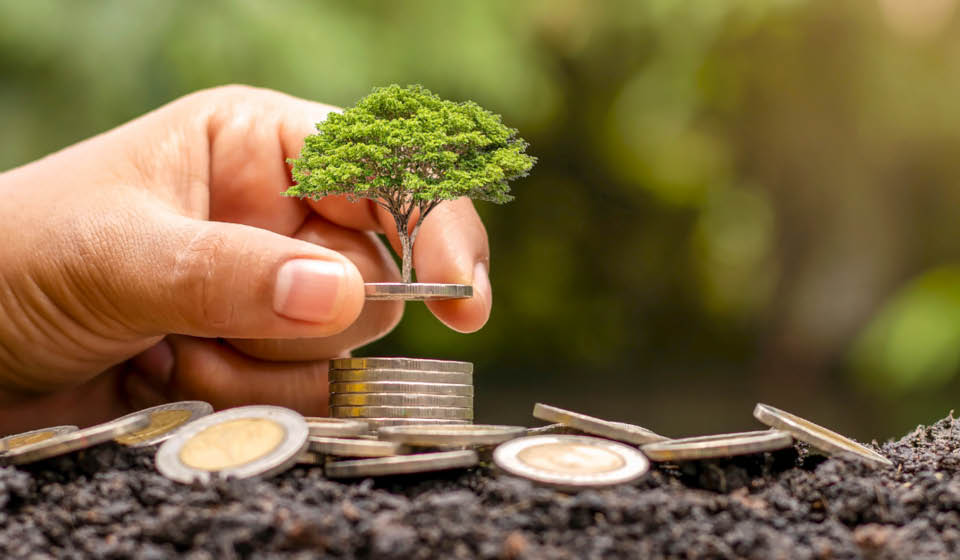
Most providers of financial services in Germany, Switzerland and Austria set great store by the social-environmental impact of their products. Critics fault the inflationary use of the term “impact”. What is at issue?
For three quarters of the surveyed providers of financial services, social-environmental impact plays an important or very important strategic role in the structuring of their products. This emerges from a survey on impact investing commissioned for the FNG 2021 Market Report on sustainable investing in Germany, Austria and Switzerland. Impact is growing in importance for investors: this is reflected by the dynamic market trend which is driven by the growing volume of impact investments. “At the same time, a more or less inflationary use is made of the term impact," criticises the association Forum Nachhaltige Geldanlagen (FNG) e.V. The purpose of the survey on impact investing was to encourage greater transparency and credibility in the market.
What are impact investments?
Impact investments are investments made with a view to generating a measurable, beneficial social or environmental impact alongside a financial return.
St. Gallen University has identified three qualifying elements in impact investing: achieving a financial return, producing positive non-financial (social and/or environmental) effects, and measuring and reporting on social and/or environmental impact.
The FNG supplements this definition with five benchmarks designed to differentiate funds in terms of their positive sustainable contribution, namely: intentionality, additionality, impact vectors, measurability, and transparency. The benchmarks are explained in detail in the study (page 8 et seq.).
FNG board members Florian Sommer and Dr Helge Wulsdorf see impact as the key theme in sustainable investment in the future. The five benchmarks would provide the necessary tools for a credible implementation in the market.
Minimising the risk of greenwashing
“Basically every investment has an impact. But the positive social and environmental impact of investing is growing in importance as a yardstick for investment decisions. Despite this trend, impact is blurred by a lack of definition which threatens to encourage greenwashing or impact-washing”, warns author Florian Sommer. FNG’s new definition of Impact Investing could provide the driving impulse.
The impact debate has received added support from regulation, notably the EU regulation on sustainability-related disclosures, the EU taxonomy and MiFID II. A more transparent structuring of impact investments is a significant concern in terms of consumer protection especially. Politicians indicate that the objective of their sustainable finance strategy is to improve the assessment of environmental and social sustainability.
No uniform classification of financial products
There is no uniform, regulatory-compliant classification of financial products capable of smoothing the differences and inconsistencies between the individual regulatory requirements and the different approaches of the financial market stakeholders. "The financial sector will increasingly disclose the social and ecological rucksack of its products. We shall then have to see which sustainability requirements the products explicitly marketed as impact-related will need to meet in order to avoid misleading investors," says author Dr Helge Wulsdorf. After all, investors are looking to generate financial returns, in addition to making a verifiable contribution to sustainable development.
Impact investing will remain an issue in future
Impact investing is dynamic. Further scientific research will be necessary to achieve a more thorough and comprehensive understanding of the issue, especially with regard to impact assessment. For example, we should ensure that investments actually contribute to achieving a sustainability goal, by reducing CO2 emissions for example. The authors believe that it is essential to avoid allowing investors to be misled by empty promises and false expectations, and that action must be taken against misleading claims. However, there is still a lack of well-tried methods for assessing impact through robust metrics and results.
About FNG
The Forum Nachhaltige Geldanlagen e. V. (FNG) is the professional association for sustainable investments in Germany, Austria, and Switzerland. Founded in 2001, the Berlin-based association campaigns for more sustainability in the financial industry and is committed to improving the legal and political framework conditions for sustainable investments.
The association consists of its members and an honorary board, composed in its turn of a chair, three deputy chairs, and up to eight board members. Its membership comprises banks, insurance companies, rating agencies, investment companies, asset managers, financial advisors, non-governmental organisations and interested individuals from Germany, Austria, Switzerland, and Liechtenstein.